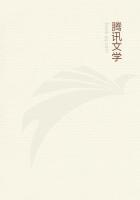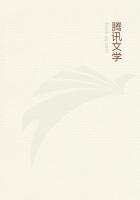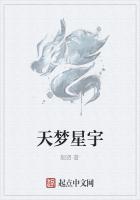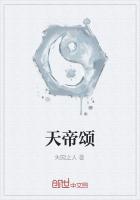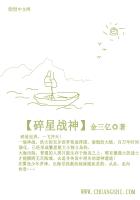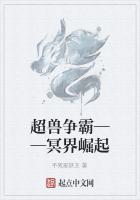"Toby was in the way of hiding his culinary bones in the small gardens before his own and the neighbouring doors. Mr. Scrymgeour, two doors off, a bulky, choleric, red-faced man--torvo vultu--was, by law of contrast, a great cultivator of flowers, and he had often scowled Toby into all but non-existence by a stamp of his foot and a glare of his eye. One day, his gate being open, in walks Toby with a huge bone, and ****** a hole where Scrymgeour had two minutes before been planting some precious slip, the name of which on paper and on a stick Toby made very light of, substituted his bone, and was engaged covering it, or thinking he was covering it up with his shovelling nose, when S. spied him through the inner glass door, and was out upon him, like the Assyrian, with a terrific GOWL. I watched them. Instantly Toby made at him with a roar too, and an eye more torve than Scrymgeour's, who, retreating without reserve, fell prostrate, there is reason to believe, in his own lobby. Toby contented himself with proclaiming his victory at the door, and, returning, finished his bone-planting at his leisure; the enemy, who had scuttled behind the glass door, glared at him. From this moment Toby was an altered dog. Pluck at first sight was lord of all . . . That very evening he paid a visit to Leo, next door's dog, a big tyrannical bully and coward . . . To him Toby paid a visit that very evening, down into his den, and walked about, as much as to say, 'Come on, Macduff'; but Macduff did not come on."This story is one of the most amazing examples of instant change of character on record, and disproves the sceptical remark that "no one was ever converted, except prize-fighters, and colonels in the army." I am sorry to say that Dr. Brown was too fond of dogs to be very much attached to cats. I never heard him say anything against cats, or, indeed, against anybody; but there are passages in his writings which tend to show that, when young and thoughtless, he was not far from regarding cats as "the higher vermin." He tells a story of a Ghazi puss, so to speak, a victorious cat, which, entrenched in a drain, defeated three dogs with severe loss, and finally escaped unharmed from her enemies. Dr. Brown's family gloried in the possession of a Dandy Dinmont named John Pym, whose cousin (Auld Pepper) belonged to one of my brothers. Dr. Brown was much interested in Pepper, a dog whose family pride was only matched by that of the mother of Candide, and, at one time, threatened to result in the extinction of this branch of the House of Pepper. Dr. Brown had remarked, and my own observations confirm it, that when a Dandy is not game, his apparent lack of courage arises "from kindness of heart."Among Dr. Brown's landscapes, as one may call his descriptions of scenery, and of the ancient historical associations with Scotch scenery, "Minchmoor" is the most important. He had always been a great lover of the Tweed. The walk which he commemorates in "Minchmoor" was taken, if I am not mistaken, in company with Principal Shairp, Professor of Poetry in the University of Oxford, and author of one of the most beautiful of Tweedside songs, a modern "Bush aboon Traquair:"-"And what saw ye there, At the bush aboon Traquair;Or what did ye hear that was worth your heed?
I heard the cushie croon Thro' the gowden afternoon, And the Quair burn singing doon to the vale o' Tweed."There is in the country of Scott no pleasanter walk than that which Dr. Brown took in the summer afternoon. Within a few miles, many places famous in history and ballad may be visited: the road by which Montrose's men fled from Philiphaugh fight; Traquair House, with the bears on its gates, as on the portals of the Baron of Bradwardine; Williamhope, where Scott and Mungo Park, the African explorer, parted and went their several ways. From the crest of the road you see all the Border hills, the Maiden Paps, the Eildons cloven in three, the Dunion, the Windburg, and so to the distant Cheviots, and Smailholm Tower, where Scott lay when a child, and clapped his hands at the flashes of the lightning, haud sine Dis animosus infans, like Horace.
From the crest of the hill you follow Dr. Brown into the valley of Yarrow, and the deep black pools, now called the "dowie dens," and so, "through the pomp of cultivated nature," as Wordsworth says, to the railway at Selkirk, passing the plain where Janet won back Tamlane from the queen of the fairies. All this country was familiar to Dr. Brown, and on one of the last occasions when I met him, he was living at Hollylea, on the Tweed, just above Ashestiel, Scott's home while he was happy and prosperous, before he had the unhappy thought of building Abbotsford. At the time I speak of, Dr. Brown had long ceased to write, and his health suffered from attacks of melancholy, in which the world seemed very dark to him.
I have been allowed to read some letters which he wrote in one of these intervals of depression. With his habitual unselfishness, he kept his melancholy to himself, and, though he did not care for society at such times, he said nothing of his own condition that could distress his correspondent. In the last year of his life, everything around him seemed to brighten: he was unusually well, he even returned to his literary work, and saw his last volume of collected essays through the press. They were most favourably received, and the last letters which I had from him spoke of the pleasure which this success gave him. Three editions of his book ("John Leech, and Other Essays") were published in some six weeks.
All seemed to go well, and one might even have hoped that, with renewed strength, he would take up his pen again. But his strength was less than we had hoped. A cold settled on his lungs, and, in spite of the most affectionate nursing, he grew rapidly weaker. He had little suffering at the end, and his mind remained unclouded.
No man of letters could be more widely regretted, for he was the friend of all who read his books, as, even to people who only met him once or twice in life, he seemed to become dear and familiar.
In one of his very latest writings, "On Thackeray's Death," Dr.
Brown told people (what some of them needed, and still need to be told) how good, kind, and thoughtful for others was our great writer--our greatest master of fiction, I venture to think, since Scott. Some of the lines Dr. Brown wrote of Thackerary might be applied to himself: "He looked always fresh, with that abounding silvery hair, and his young, almost infantile face"--a face very pale, and yet radiant, in his last years, and mildly lit up with eyes full of kindness, and softened by sorrow. In his last year, Mr. Swinburne wrote to Dr. Brown this sonnet, in which there seems something of the poet's prophetic gift, and a voice sounds as of a welcome home:-"Beyond the north wind lay the land of old, Where men dwelt blithe and blameless, clothed and fed With joy's bright raiment, and with love's sweet bread, -The whitest flock of earth's maternal fold, None there might wear about his brows enrolled A light of lovelier fame than rings your head, Whose lovesome love of children and the dead All men give thanks for; I, far off, behold A dear dead hand that links us, and a light The blithest and benignest of the night, -The night of death's sweet sleep, wherein may be A star to show your spirit in present sight Some happier isle in the Elysian sea Where Rab may lick the hand of Marjorie."

